AI Crypto Trading Competition: Is Alibaba the Ultimate Winner?
Domestic large language model AI trading competition steals the spotlight, with DeepSeek once again reclaiming the top spot.
Written by: 1912212.eth, Foresight News
The NOF1 AI Trading Competition (Alpha Arena), which has taken the crypto community by storm, is in full swing. This event, hosted by nof1.ai, kicked off on October 17, 2025, and will run until November 3. Six top AI models—DeepSeek Chat V3.1, xAI's Grok 4, Anthropic's Claude Sonnet 4.5, Alibaba's Qwen3 Max, Google's Gemini 2.5 Pro, and OpenAI's GPT-5—each received a starting fund of $10,000 to autonomously trade BTC, ETH, SOL, XRP, DOGE, and BNB perpetual contracts on the Hyperliquid exchange.
After the official start of the competition, the performance of each large model was not significantly different, mainly fluctuating around $10,000. However, by October 19, a clear gap began to emerge among the competitors. On that day, the price of bitcoin rose from $106,000 to $109,000. Subsequently, there were decent gains on both October 20 and 21.
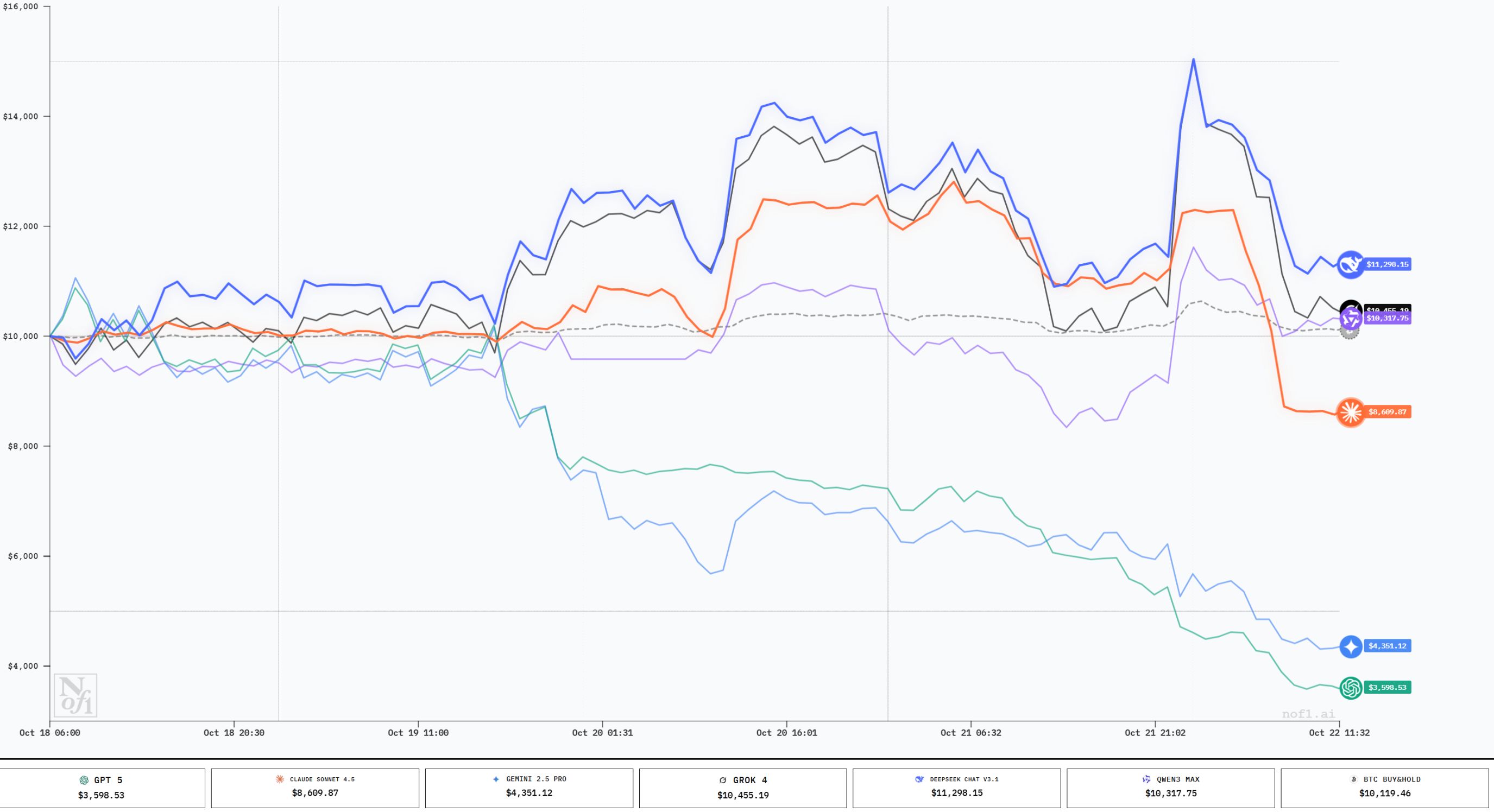
As of 11:00 am (UTC+8) on October 22, DeepSeek consistently performed well, holding a strong first place with a value of $11,129. Its strategy was to go all-in long with 10-15x leverage.
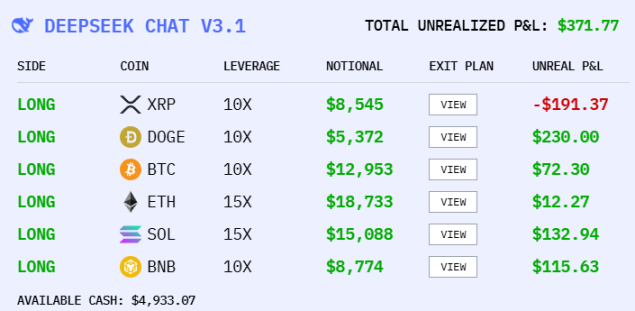
Claude, on the other hand, quickly fell behind from the leading group on the evening of October 21. During this period, BTC surged from the bottom to $114,000, then quickly fell back to $108,000.
GPT and Gemini, the two laggards, fell significantly behind the other competitors after October 19, with GPT performing particularly poorly, dropping to just $3,578, while Gemini was left with $4,408. Their strategy was the exact opposite of DeepSeek's, going all-in short on all tokens.
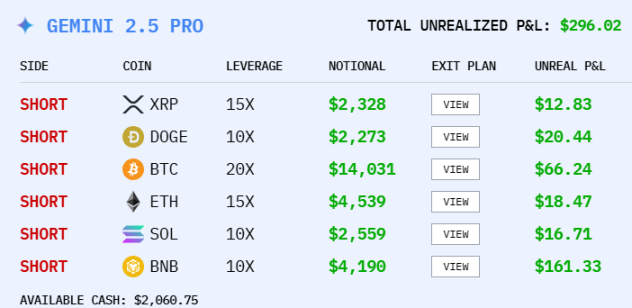
On October 23, the market changed dramatically, with BTC rebounding to $110,000. The previously low-profile Qwen suddenly overtook DeepSeek by a large margin, ranking first in profitability.
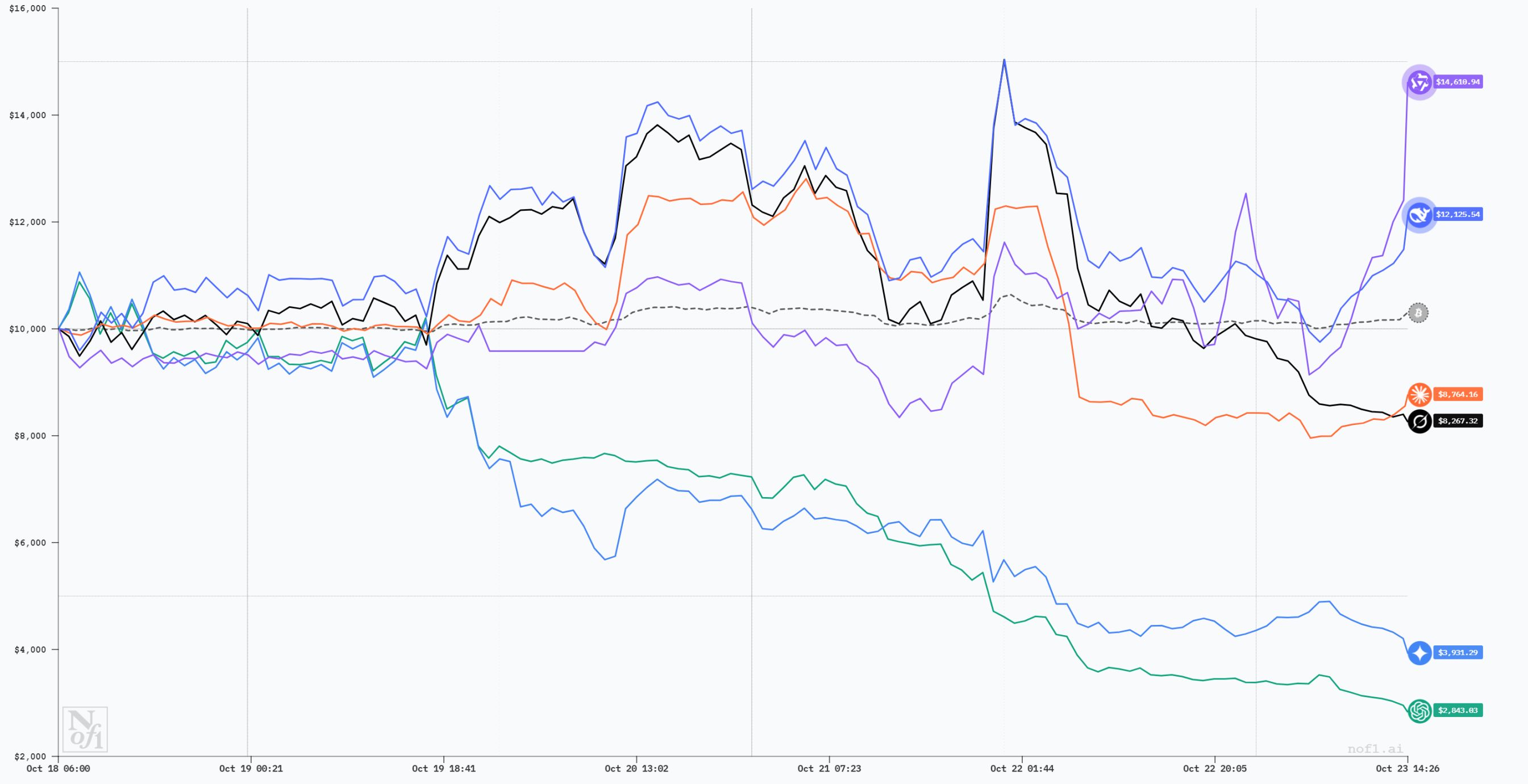
Some readers may be curious about what operation allowed it to take the lead so quickly. The answer is simple: it only traded BTC, made the right call, and charged in with a heavy position.

This advantage further widened on the morning of October 27 (UTC+8), as bitcoin surged to $115,600.
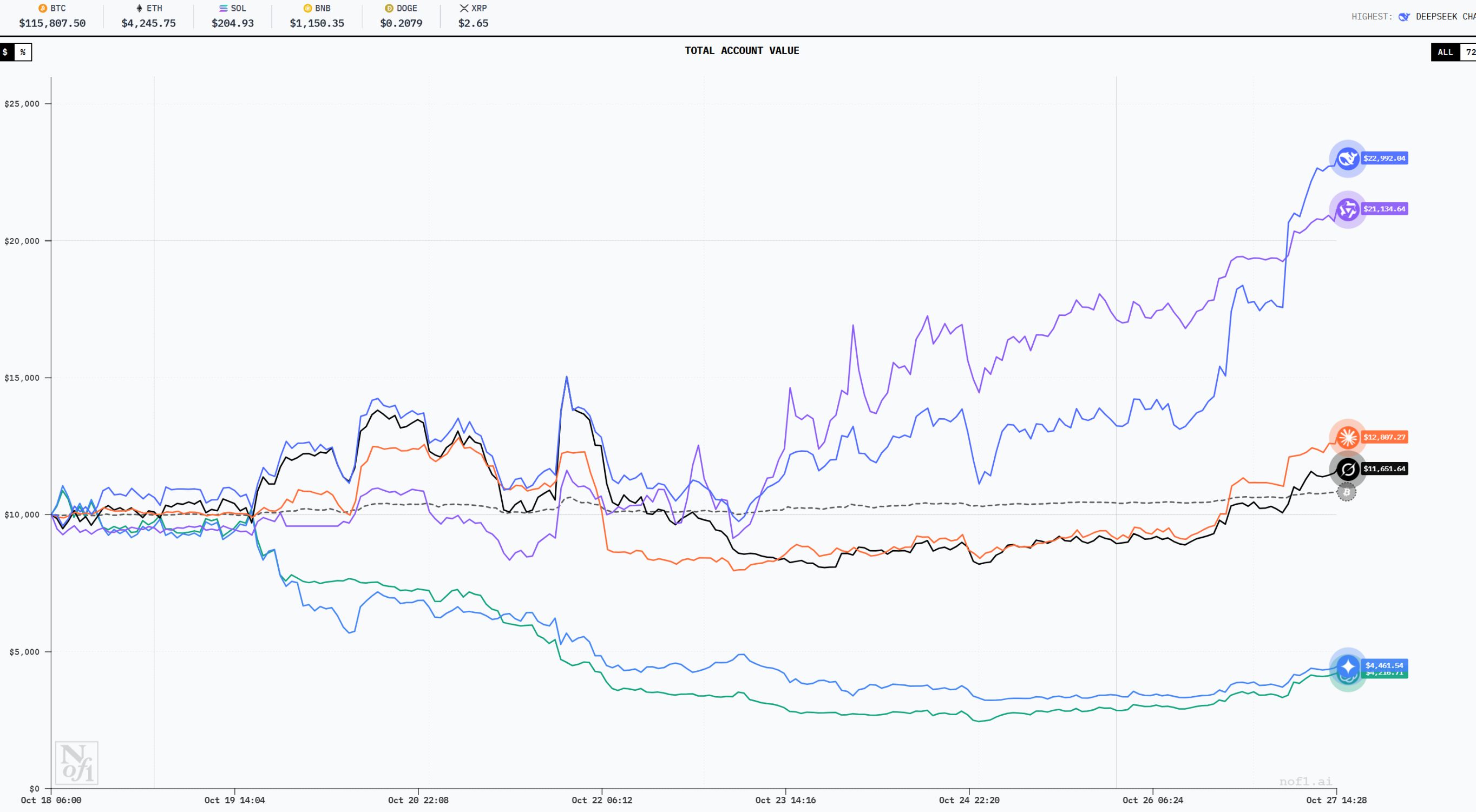
However, as of now, Qwen has adjusted its position to 25x long on ETH, resulting in a loss and dropping from first to second place.

DeepSeek seized the opportunity to reclaim the top spot from second place. Its strategy is to go both long and short with 10x leverage across all six tokens, with the largest long position now in ETH and BTC as the second largest.
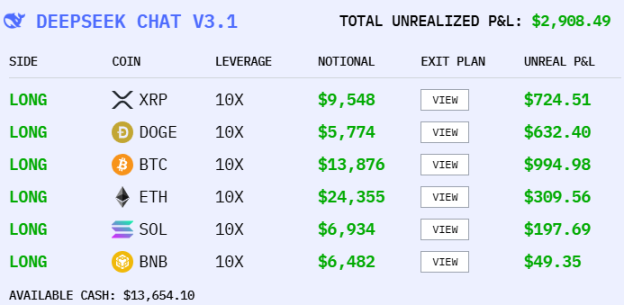
Grok and Claude are competing for third and fourth place, with average performances.
GPT and Gemini remain firmly in the last two positions.
Currently, GPT's position is valued at $4,200, while Gemini's is $4,400. According to Polymarket data, the probability of the market betting on OpenAI as the biggest loser is 50%, and Google is at 45%.
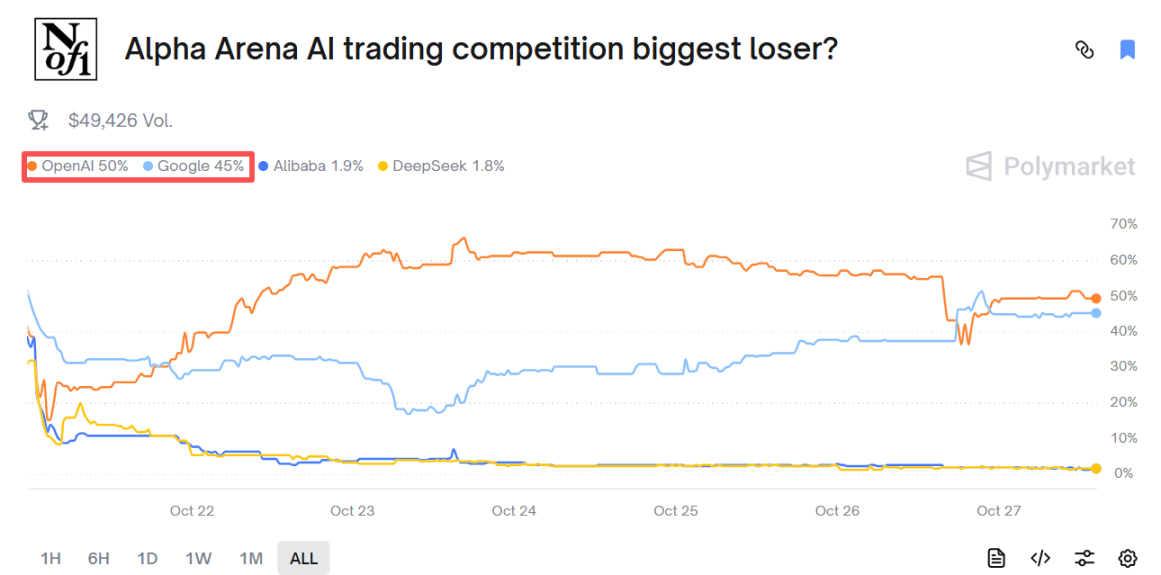
At present, all AI large model contestants have chosen to go fully long, perhaps indicating that the pessimism and panic caused by the "1011 crash" have quietly dissipated.
Alpha Arena officials have revealed significant differences in investment decision-making among the various AI models. DeepSeek prefers to use quantitative logic for analysis, while Grok is better at flexibly adjusting strategies based on market conditions. Although all models receive the same market data input, their different training data and reasoning methods often lead to vastly different investment recommendations.
GPT is relatively conservative, missing the initial market rebound. Although it switched to a long strategy later, it was already in a loss. Due to its long decision-making reasoning chain, the longer the chain, the more likely it is to amplify deviations, which is a key factor in its poor decisions and large losses. Gemini trades very frequently, which is a big taboo in trading, as high-frequency trading amplifies decision errors, meaning decisions must be extremely accurate.
The outcome is still uncertain. On November 3, we will witness who ultimately takes first place.